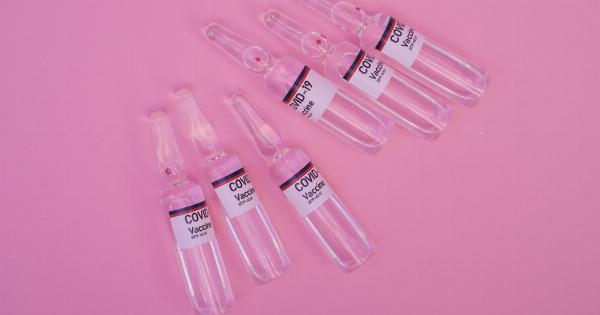In the world of pharmaceuticals, Merck and Pfizer are two giant names that have been in business for decades. The rivalry between these two companies has been intense as they compete for dominance in the drug market.
Both Merck and Pfizer have a massive portfolio of prescription drugs that are used to treat various conditions and diseases. In this article, we will take a closer look at the battle of pills between Merck and Pfizer.
History of Merck and Pfizer
Merck was founded in 1891 in New Jersey. The company’s first product was a manual titled “Merck’s Manual of the Materia Medica,” which became a standard reference throughout the medical world.
Over the years, Merck has become well-known for its drugs such as Fosamax, Zocor, and Januvia. Some of Merck’s successful drugs include:.
- Fosamax for osteoporosis.
- Januvia for type 2 diabetes.
- Gardasil for HPV.
- Zocor for high cholesterol.
- Propecia for male pattern baldness.
Pfizer, on the other hand, was founded in 1849 in Brooklyn. Pfizer has focused on developing innovative and breakthrough drugs that have transformed the medical industry. Some of Pfizer’s successful drugs include:.
- Viagra for erectile dysfunction.
- Celebrex for arthritis and pain management.
- Chantix for smoking cessation.
- Lipitor for high cholesterol.
- Zithromax for bacterial infections.
The Battle of Drugs
Both Merck and Pfizer have developed blockbuster drugs that have generated billions in revenue. They both invest heavily in research and development (R&D) to create new drugs that can treat various diseases.
In 2019, Merck’s R&D spending was $12.6 billion, and Pfizer’s R&D spending was $8.7 billion. Both companies have a strong focus on oncology and immunology.
Merck’s Keytruda and Pfizer’s Ibrance are two cancer drugs that have generated billions in revenue. Keytruda is used to treat advanced melanoma, non-small cell lung cancer, and head and neck cancer. Ibrance is used to treat breast cancer.
Both drugs have been successful in clinical trials and have been approved by the FDA.
Merck and Pfizer’s rivalry has also spilled over into the development of COVID-19 vaccines. Both companies have been working on vaccines to combat the pandemic.
Pfizer’s vaccine was the first to be approved by the FDA, while Merck discontinued its vaccine development in January 2021.
Patent Wars
In the battle of pills, patent wars are common, and Merck and Pfizer have also been involved in patent litigation.
Pfizer sued Merck over Januvia, alleging that Merck infringed on Pfizer’s patent for a dipeptidyl peptidase-4 (DPP-4) inhibitor, a class of drugs that includes Januvia. Merck countered that Pfizer’s patent was invalid, and the case was settled in 2017, with Merck agreeing to pay Pfizer $625 million.
In another patent dispute, Merck sued Pfizer over Enbrel, a drug used to treat rheumatoid arthritis. Merck claimed that Pfizer infringed on its patents for Enbrel, and the case was settled in 2019, with Pfizer agreeing to pay Merck $2.15 billion.
Marketing Strategies
Both Merck and Pfizer have used various marketing strategies to promote their drugs.
In the 1990s, Pfizer launched a successful campaign for Viagra, which featured the tagline “Get back to mischief.” The campaign was aimed at older men who wanted to remain sexually active. Merck used a similar strategy with its drug Fosamax, which was marketed to postmenopausal women with osteoporosis. The campaign featured actress Blythe Danner and the tagline “I chose Fosamax”.
Both companies have also used social media to promote their drugs. Pfizer used Twitter to launch its drug Lyrica, which is used to treat fibromyalgia, while Merck has used YouTube to promote its HPV vaccine Gardasil.
Conclusion
The battle of pills between Merck and Pfizer has been ongoing for decades. Both companies have developed blockbuster drugs that have generated billions in revenue. They have invested heavily in R&D and have focused on oncology and immunology.
They have also been involved in patent litigation, and both have used various marketing strategies to promote their drugs. With the constant advancement of medical technology, it will be interesting to see how these two pharmaceutical giants continue to compete and innovate in the future.
























